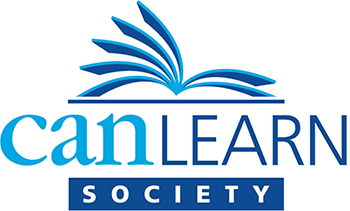To respect both person-first and identity-first perspectives, we have used both “autistic person” and “person with autism”.
Since April is traditionally considered autism “awareness” month, the CanLearn community would like to continue the conversation to reflect on the idea that autism “acceptance” spans more than one month and is a continual process.
Autistic people make up between 1 and 2% of the population. In Canada alone, this 1 to 2% represents a huge group of neurodivergent people across many ages, ethnicities, and genders, each at a different stage of recognizing and embracing their unique profile of strengths and challenges.
In recent years, the autism community has been calling for a change in language use, which includes moving away from autism “awareness” and towards autism “acceptance.” This essential shift speaks against the idea of neurodivergence, or differences in brains and thinking styles, as something negative.
This shift also reflects the need for greater acceptance and inclusion of people with autism in wider society. Stigma, stereotypes, and other misperceptions of people with autism, including those found in media and popular culture, may contribute to a lack of acceptance of autistic people by others. This, in turn, may negatively impact self-acceptance of one’s autism and contribute to poorer mental health outcomes such as anxiety. Further, misunderstandings between autistic and non-autistic people can be a barrier in everything from social interactions to daily life, creating obstacles and challenges for people with autism and their families.
By contrast, the concept of neurodiversity is a critical piece of acceptance because it both recognizes and celebrates differences in brain wiring. People with autism experience the world in unique ways, with every person on the autism spectrum having a distinct set of strengths, challenges, and ways of seeing the world. This sentiment is beautifully captured in a quote from self-advocate Dr. Stephen Shore: “If you’ve met one person with autism, you’ve met one person with autism.” Finally, it is worth highlighting that autism impacts each family member differently and may be associated with a range of challenges and positive outcomes.
Acceptance can include the following:
- being open and curious, seeking knowledge, engaging in self-reflection, and appreciating neurodiverse experiences
- creating space for the voices of autistic people across the spectrum
- seeking a greater understanding of the neurodiverse community and their experiences (for example, following blogs or social media from people in the autism community)
- asking neurodiverse individuals what language they prefer (for example, “person with autism” vs. “autistic”)
- loving and appreciating neurodiverse individuals in your life for who they are
- acknowledging both the challenges and strengths that come with autism
CanLearn is proud to represent one of many areas of support for neurodivergent learners and their families. Join us in supporting the Autism community’s vision for a neurodivergent future where we can accept and embrace diversity in all its forms.
Aryn Lisitza (she/her) is currently an MSc student in the Counselling Psychology program at the University of Calgary. Kelsey Friesen (she/her) has an MSc in School and Applied Child Psychology and is pursuing her PhD in the same program through the University of Calgary. Jennifer Williamson (they/them) is a recent graduate from the University of Calgary and is an autistic self-advocate.

